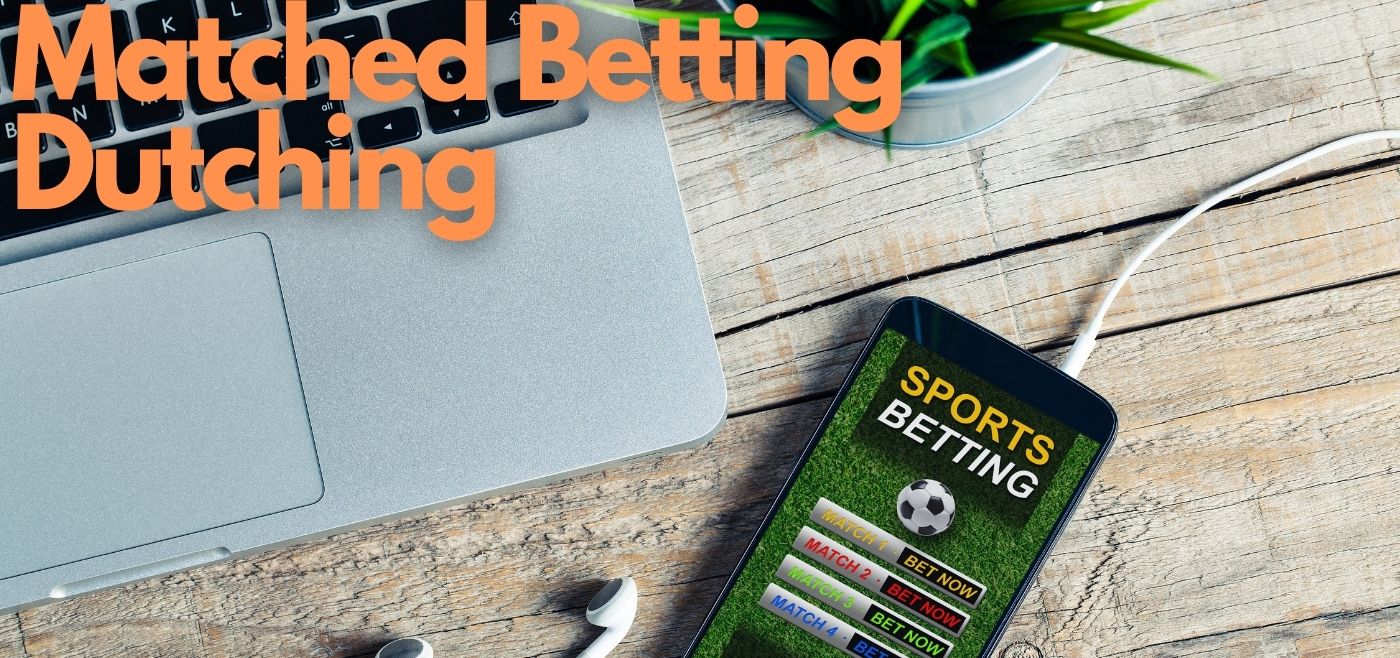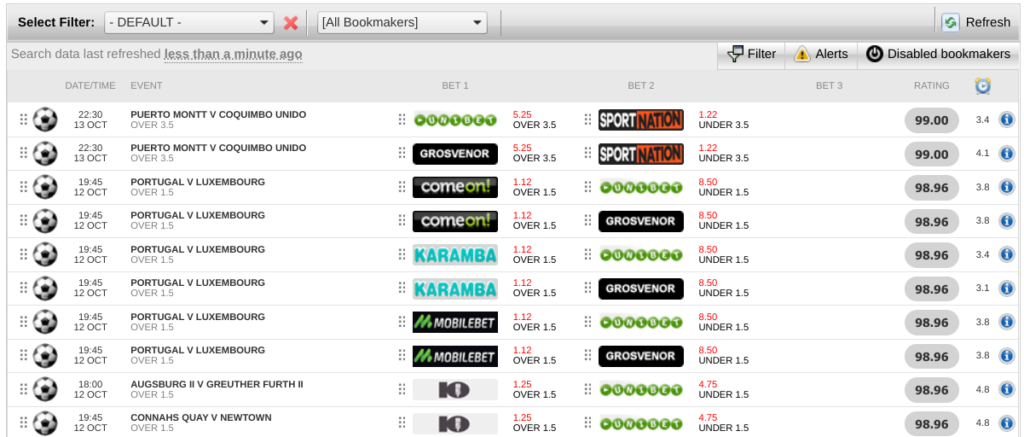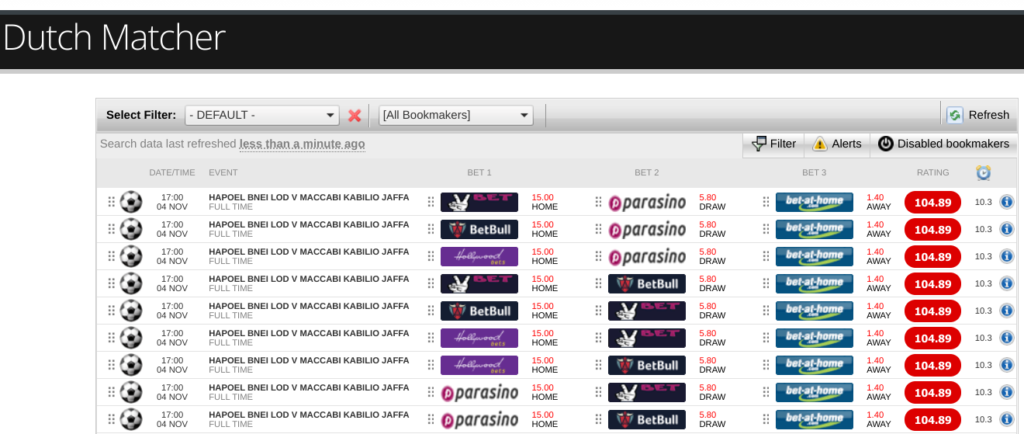What is Matched Betting Dutching
This guide to Dutching matched betting is posted in our advice and guidance section but is also considered an advanced matched betting technique by many. Once you learn what it’s all about and how to use the technique, it is not quite so complicated.
With standard matched betting, after placing a back bet, we then lay our bets with the betting exchange. In this way, we have covered all potential outcomes.
Dutching instead does not utilise a betting exchange but rather different bookmakers! Typically, for example, one bookmaker could back the winner of a game, another the loss and another the draw.
For matched betting football – unlike with normal matched betting, we need to make three bets (with dutching all at different bookmakers).
Because we are not laying at the exchange, we also need to place a bet on the draw.
Why use Dutching with Matched Betting?
We commonly use dutching for matched betting horse racing, as it is most useful for markets/events with two or three possible outcomes.
There are pros and cons for not using an exchange, including that there will be no commission to pay. Other reasons are further below.
It’s always worth knowing more matched betting techniques such as matched betting dutching since they allow us to complete more matched betting offers, including the option to utilise old bookmaker accounts that are of no use for reload offers (no free bets required for dutching bad accounts!).
Reasons for Using the Dutching Technique
There are multiple other reasons for utilising the dutching technique (such as one or two bookmakers instead of one bookmaker & an exchange).
- Provides greater choice over our bets by using bookmakers, which can help avoid problems when the exchange does not cover (or there is not enough liquidity) the market, meaning you would otherwise be unable to match your bet.
- For tennis retirement rules which are often different between the exchange and the bookmaker, we can avoid the risk of the same outcome for both bets. With matching all eventualities at other bookmakers, no matter what player wins and for whatever reason, at least one of our bets will win.
- No liability requirement with bookmakers. With an exchange, we often require a significant liability for our bets, but with a bookmaker, there is none, and so a lot less cash is required to place your bet.
- Due to low liquidity, bookmakers are now doing more offers on e-gaming markets, which are often not an option on a betting exchange.
- It can be an excellent way to exploit underused/bad bookmaker accounts that you are not concerned with losing (such as with arb betting).
Earn Extra Income - Access our Free Resources to Learn Matched Betting Easily
Dutching Matched Betting - The Dutching Oddsmatcher
Similarly to a normal oddsmatcher, we can match our bets with a Dutch matcher by finding the right opportunities at each bookmaker.
A Dutching oddsmatcher works very much the same as it does for standard matched betting and for arbs, though significantly, OddsMonkey advises it is not best for free bets though it is possible.
The oddsmatcher works well for matched betting with multiple outcomes such as 2-way dutches.
For three-way dutches with 3-way outcomes, it may also be best to use a matched betting calculator, specifically the dutching calculator. This would be the case with dutching football.
To find out more information on dutching matched betting, then check out the OddsMonkey Dutch Matcher.
Dutching Arbs
We can use dutching for arbing, and as with a normal oddsmatcher, we adjust to include matches over 100%.
An arb bet allows us to profit instantly by merely placing your bets, and with dutching, this would only be with bets at bookmakers.
The usual dangers with arbs exist, as detailed in our post on arbitrage matched betting.
You can mitigate some of these dangers by placing your back bets in-store (known as sharbing), but beginner matched bettors need to proceed with caution when it comes to arb betting.





